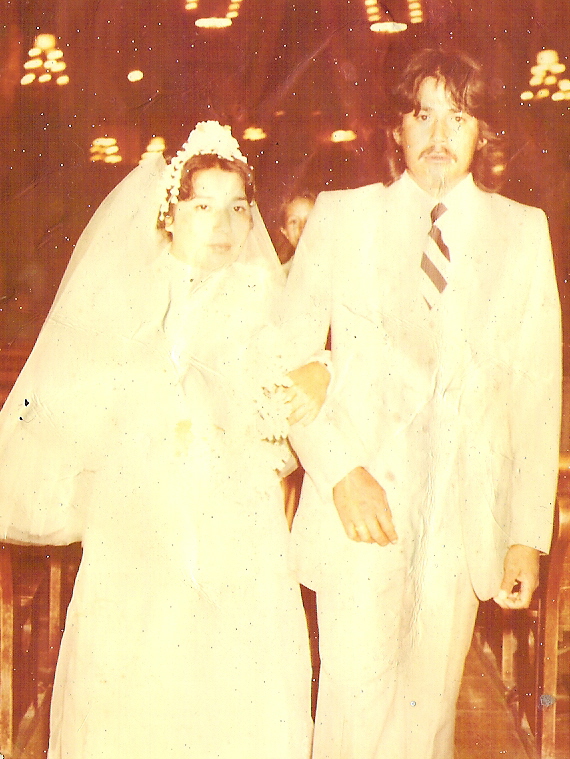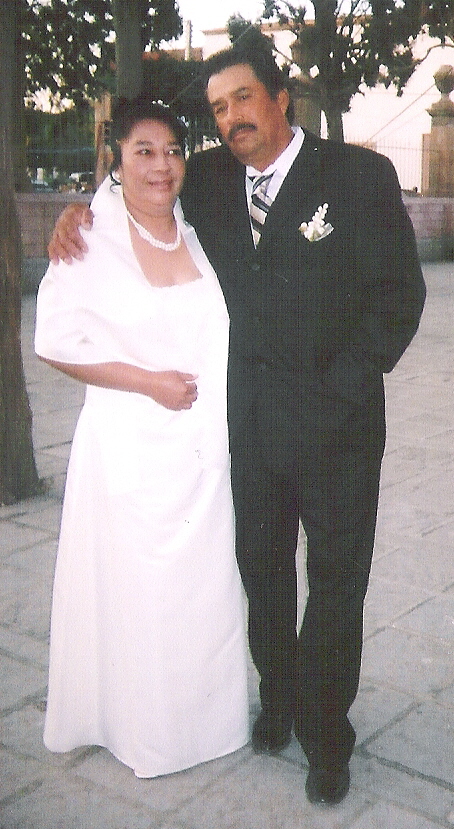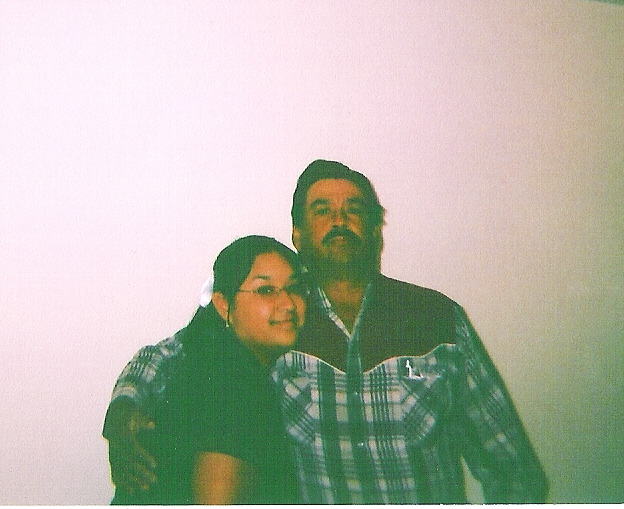Francisco Palacios


(This interview was conducted in Spanish.)
Where and with who did you live with in Mexico?
I lived in a little town named San Felipe, which is located in Guanajuato Mexico. I lived with my grandma and my two aunts, because my mom died when i was only two and my dad was in jail.
What is a memory you have about your parents?
My mom I didnít even get to meet her, but my dad was in jail for murder and i hardly saw him.
What would you change about your childhood, if given the opportunity?
I wouldnít change anything. Besides the fact I was poor I was a happy kid.
What is your most missed memory of your childhood?
I miss playing Baseball and other games with my friends.
What was a typical meal you remember eating?
Beans, corn tortillas, Chili, and eggs whenever there was any. The only thing I remember us drinking was milk from our cows, and water from the well
on our ranch.
Why did you not finish school, and how far did you get?
I dropped out of school in the 6th grade, because there was no money for my school supplies, and had to work and help my aunts with the ranch.
Explain a day on your ranch in Mexico?
In the mornings I would wake up and would roast cactus for the cows. Then I would milk the cows and take them to the mountains so they could eat. Then I would grab two male cows and work the land with them to grow beans, and corn. I would work until three and then go in to eat and come back again and feed the cows once more.
What was work like on your uncleís ranch?
It was hard, and I didnít get any money for it. Nothing at all.
Why did you decide to immigrate to the United States?
Itís really obvious, because here there are better ways for life, and I couldnít raise a family well in Mexico.
What did you know about the United States before coming here?
That it was the country where everyone wanted to go because of the job opportunities.
What reaction did your aunts give when you told them you were leaving to the United States?
They told me to be very careful, and they said they would pray for me and miss me dearly.
Explain how you came to the United States, and how old you were when you first immigrated?
I was eighteen when I decided to come to the United States. I would board a bus from my San Felipe, Guanajuato to San Luis Potosi. Then I would take the train from San Luis to Piedras Negras. I would get off in Piedras and walk to the Rio Grande where I would cross the river walking or swimming at a fast pace. Once I crossed the Rio Grande I would walk until I reached Uvalde, DíHanis, or Sabinal, then there I would look for a ranch and see if they would give me a job doing ranch work. I would work on their ranch even if it was not for money, even if they just fed me. Then I would either walk to San Antonio or try and hitch a ride, as long as I got there was all that mattered to me.
How many times did you get caught by before you actually became a resident, and explain what happend when immigration caught you?
I donít know exactly, but it must have been 7 or 8 times. Without counting the times I lied and said I was a U.S. Citizen. When immigration did catch me they would take me down to the immigration office depending where I was caught, make me fill out some forms, then send me back to Mexico either on plane or bus.
Why have you not become a U.S. citizen yet?
I do want too, but I have not had any time to take the test. Maybe in the future.
What was your first job like here in the United States?
I first worked for a man named Ascension Munizís. I would fix his fences, feed his cattle, and clear the rocks off his ranch so he could have more land.
Why did you choose to stay in San Antonio?
Here in San Antonio I found a job, and because there was lots of Mexican people that I could communicate with. Also because I thought it was the closest to the land I love most, Mexico.
When did you get married and how did you meet your wife?
I met her in San Felipe, Guanajuato in 1974, when I came down from my job in Mexico City for Easter weekend. I was on the bus and she was in the park, she was standing across the street so I screamed to her hello and waved. The next day I went back to the same place saw her lost her for a couple of hours, and found her again. Then I finally followed her she was eating a lollipop and I asked her if she would give me some, and from there the story follows. Six years later in 1980 we married.


Would you ever go back to live in Mexico?
Of course, yes because itís a weird feeling. I imagine everyone would love to go back to their hometown where they grew up, because it brings back great memories.
Do you like where your life is right now?
Yes I do like it, because I have a job, and everything I need to live.
Is there anything else you would like to add to this interview?
I hope that my kids continue to have a good education, and for them to reach their goals, so I can die comfortable knowing I did my job raising them well. I also hope to become a United States Citizen, but also be able to conserve my Mexican Nationality.

Estado de San Felipe, Gto. Copyright © Instituto National para el Federalismo y el Desarrollo Municipal, Gobierno del Estado de Guanajuato."Enciclopedia de los Municipos de Mexico, Estado de Guanajuato. http://www.e-local.gob.mx/work/templates/enciclo/guanajuato/municipios/11030a.htm
San Felipe Torres Mochas, Gto. http://sanfelipe.guanajuato.gob.mx/.(2005).
Rio Grande. Copyright 2006, Columbia University Press. "The colombia Electronic Encylopedia, 6th ed." http://www.infoplease.com/ce6/us/A0841960.html (2006).
Immigration. Copyright 2005-2006, US Immigration Services. "United States Immigration Support" http://www.usimmigrationsupport.org/ (2005-2006).
Reynosa Website Copyright ©2006 Soylent Communications "Reynosa Vive El Cambio" http://www.reynosa.gob.mx/(2006).